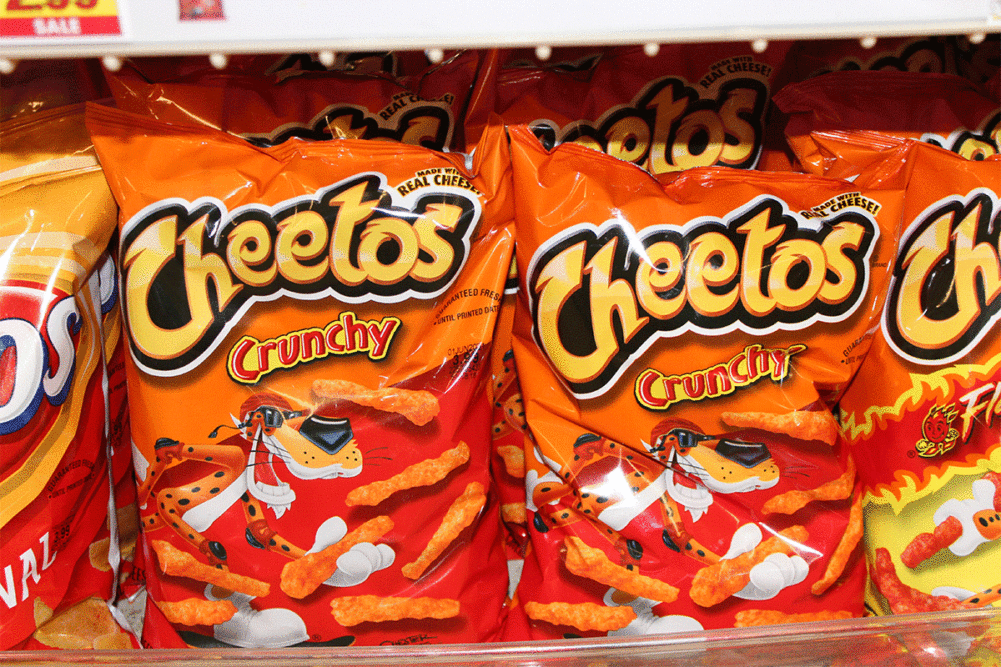PURCHASE, NY. — Higher prices haven’t stopped shoppers from buying Gatorade and Doritos. Ramon L. Laguarta, chairman and chief executive officer of PepsiCo, Inc., said the consumer response to price increases across its portfolio of brands has exceeded management’s expectations.
“…we’re seeing the majority of consumers staying within our categories, staying within our brands, and it’s remarkable what our marketing teams and commercial teams have been doing to minimize elasticity,” he said during a July 13 conference call with securities analysts. “In some respects, it is what we have been investing for the last few years. Our brands are stronger. The perceived value of our products is better than it was. And obviously, we've been able to raise prices, and consumers stay within our brands.”
Based on strong year-to-date performance, as well as improved supply chain and labor market conditions, management has raised its full-year outlook. Organic revenue now is expected to increase 10%, up from a previous guidance of 8%, while earnings per share in core constant currency are expected to increase 12%, up from a previous guidance of 9%.
Net income attributable to PepsiCo for the second quarter ended June 17 was $2.75 billion, equal to $1.99 per diluted share on the common stock, up 9.2% from $1.43 billion, or $1.03 per diluted share, in the prior-year period. In the year-ago quarter, the company recorded a gain associated with the divestment of certain juice brands and impairment charges related to decrease in fair value of intangible assets as a result of the Russia-Ukraine conflict.
Net revenue for the quarter totaled $22.32 billion, up 10% from $20.23 billion.
In PepsiCo Beverages North America, operating profit was $723 million, up 11% from the year before, and net revenue was $6.76 billion, up 10%. Organic revenue also increased 10%, reflecting growth across large-format, small-format and foodservice channels.
Investments in brands, technology, consumer insights, manufacturing, and go-to-market execution are driving growth across the portfolio with double-digit net revenue growth in Gatorade and high-single-digit net revenue growth in Pepsi, Starbucks and Rockstar, according to the company.
Management cited the addition of zero-sugar soft drinks, sports nutrition products, distribution partnerships in the energy drink category, and a strategic expansion into the alcohol market as areas of focus within the segment.
Operating profit for Frito-Lay North America advanced 15% to $1.65 billion, and revenue rose 14% to $5.9 billion. Organic revenue also grew 14%, marking the seventh consecutive quarter of double-digit organic revenue growth, according to the company. Continued top-line momentum was led by a diversified portfolio, marketplace execution and net revenue management capabilities, according to the company.
Lay’s, Doritos, Cheetos, and Ruffles each delivered double-digit net revenue growth, while smaller, emerging brands including PopCorners, SunChips, Bare and Off The Eaten Path also each delivered double-digit net revenue growth. New packaging options, baked and lightly salted offerings, and spicier flavor combinations are among ways the company aims to meet evolving consumer needs and taste preferences.
In the Quaker Foods North America business unit, operating profit decreased 5% to $129 million, while revenue of $684 million was up 1% from the prior year. Organic revenue increased 2%. PepsiCo gained share in the pancake mix, pancake syrup, grits, rice and pasta and light snacks categories and delivered double-digit revenue growth in light snacks, grits, cookies, and pancake syrups and mixes.
Recent launches extending the business into new dayparts and occasions include Quaker Chewy Granola, Marias Gamesa cereal, Cap’n Crunch Instant Oatmeal made with Quaker Oats, Fruit Fusion Instant Quaker Oatmeal, Cap’n Crunch Original Crunch Treats Cereal Bars, and Near East Heat & Eat Rice Pilaf and Long Grain & Wild Rice.
The international business delivered 11% revenue growth and 15% organic revenue growth, reflecting the benefits of increased investments to drive higher per capita consumption, build scale and market share, and expand portfolio breadth. Year-to-date, PepsiCo gained savory snack share in China, India, Saudi Arabia, Turkey, the Netherlands, South Africa, Belgium and Pakistan, and gained beverage share in Mexico, Brazil, Turkey, India, Egypt, and Nigeria. Operating profit was up 29% in Latin America and 7% in Asia Pacific, Australia and New Zealand and China region, flat in Europe and down 11% in Africa, Middle East and South Asia.
For the first six months of the fiscal year, PepsiCo had net income of $4.68 billion, equal to $3.38 per diluted share, down 18% from $5.69 billion, or $4.09, in the comparable period. Net revenue year to date totaled $40.17 billion, up 10% from $36.43 billion.
In prepared remarks released ahead of the conference call, management shared updates on ongoing initiatives to drive long-term sustainable performance and “promote positive change for the planet and people.” Milestones include more than doubling its regenerative farming footprint through partnerships and new technologies, improving operational water-use efficiency, and reducing added sugars and sodium levels across the portfolio.





